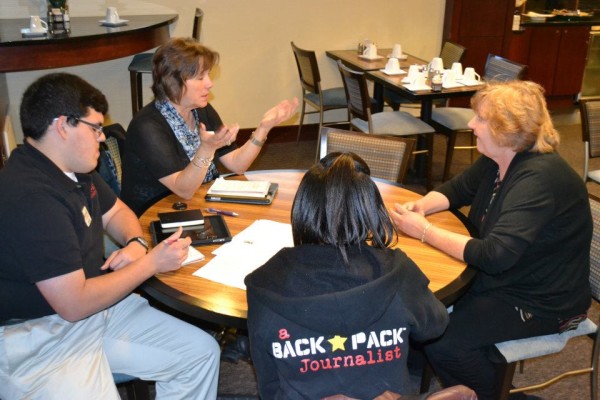A conversation with Mary Smith, Cole’s Mother
From the film: Where Soldiers Come From
Reported by Alexus Packwood
“The deployment and coming home”.
Imagine watching him walk out that door. Your child. But a child no more. No, your child has grown-up and joined the Army National Guard. And your child is being deployed along with seven of his friends to Afghanistan. Imagine. “Oh, if only it was my imagination” Mary said. If only Mary Smith didn’t have to watch her ‘fresh out of high school son’ Cole Smith leave home and become a deployed soldier. But she does. And by just knowing that much, Mary is worried about her son. Adding to that weariness is knowing what he is doing.
When Cole joins the military, he is given the only position available at that time and receives training for it. Training for IED (Improvised Explosive Devices). So naturally Mary is a concerned mother. So, to keep from thinking about it, which will probably get her to think of the inevitable, Mary keeps herself busy? She works jobs as a waitress and a hair-dresser.
Nothing compares to her support group, made up of the families of those young men who deployed with Cole. During the deployment, they meet to give support to each other and see whether or not they had heard something about what was going on with their child, friend, boyfriend, or whatever their relation was to the soldiers and their families.
Generally when you look at it, these soldiers have the support of the whole community. The support of a small town in the Michigan Upper Peninsula: population estimated at 4634. And it is there in her home, where Mary communicates with her son through Skype at least once a week. But there are times that she and other family and friends are informed by their soldier that they are going to missions, and they won’t be able to talk for a couple of weeks. Imagine how worried you’d be if it is your son.
Walk a mile in Mary’s shoes. What would you do to ease the worrying? “I kept myself busy,” Mary says. And she does. She sent care packages overseas to Cole. That continued for the nine months Cole and his friends were deployed. Now, Mary Smith has her son back with her and all eight soldiers came back from Afghanistan in one physical piece. Hancock celebrated with a “Welcome Home parade!”
Mary says quietly, “My son is back, but he is different. Not the boy that left.”
About: Where Soldiers Come From
It wasn’t long after Dominic Fredianelli, a sensitive, artistic high school graduate in a remote town in northern Michigan, signed up for the National Guard that his buddies started following his lead. In exchange for just one weekend of training a month, they would earn a $20,000 signing bonus and much-needed college tuition support. Before he knew it, 10 friends were in the group. They knew there was a chance that they’d be sent to war sometime during their six-year stint, but, as Cole Smith, Dominic’s best friend said, “I wasn’t really doing anything; my buddies had already joined. … I figured, ‘Twenty Gs, one weekend a month, let’s do it!'”
Thus begins director Heather Courtney’s new film, Where Soldiers Come From, which paints an intimate portrait of these friends’ four-year journey from teenagers stuck in Michigan’s Upper Peninsula to soldiers in Afghanistan. Shooting in vérité style, Courtney focuses on three of the friends — Dominic, who takes art classes and paints large murals in the abandoned buildings that belonged to a once-thriving copper mining industry; Cole, the comedian in the group; and Matt Beaudoin (“Bodi”), who has a history of military service in his family and is proud to serve his country. They change from carefree teenagers who spend their days swimming in Lake Superior and drinking at bonfires to soldiers getting hit by homemade bombs in Afghanistan and combat veterans dealing with traumatic brain injury (TBI) and post-traumatic stress disorder (PTSD).


